Learning is a continuous process, and becoming proficient in the art of effective learning can greatly advance both your career and personal development. Adopting the appropriate tactics can make all the difference, whether you’re a professional looking to upskill, a student striving for academic achievement, or just someone who wants to learn new things. Let’s explore some useful and tried-and-true strategies for learning.
- Recognize Your Learning Style:
Everybody learns differently. Understanding your preferred learning style will enable you to modify your study strategies for best outcomes. Although there are several models, some popular types are as follows:
For those who learn best by seeing, visual aids such as charts, graphs, films, and written directions are ideal.
For those who learn best by hearing, lectures, conversations, and audio recordings are ideal.
Read/Write Learners: Taking notes, summarizing, and making lists are all ways that learners learn best.
Kinesthetic learners learn best by doing and experiencing; this includes role-playing, experimentation, and hands-on activities.
- Plan Your Learning and Establish Specific Goals:
Knowing exactly what you want to learn is the first step toward effective learning.
Establish Clear Goals: Rather of stating “learn history,” try to “understand the causes of World War I.”
Divide Up Big Tasks: Break up difficult subjects into smaller, more manageable portions. As you advance, this gives you a sense of accomplishment and lessens the intimidating nature of learning.
Establish a Study Schedule: Set aside certain hours for learning, and try your best to follow your strategy. The secret is consistency.
- Make the Most of Your Study Space:
Your environment can have a big influence on how well you concentrate and learn.
Locate a Quiet Space: Reduce distractions by picking a specific study space that is quiet and uncluttered.
Arrange Your Resources: Maintain the organization and accessibility of your books, notes, and other resources.
Make Sure You Have the Right Lighting and Comfort: A pleasant, well-lit space helps improve focus and lessen weariness.
- Prioritize well-being and take breaks:
A healthy mind and body are necessary for optimal learning.
Plan Regular Breaks: Taking brief breaks throughout study sessions might help you stay focused and avoid burnout.
Get Enough Sleep: Cognitive function and memory consolidation depend on getting enough sleep.
Consume Healthful Foods: Eat a healthy, balanced diet to fuel your brain.
Engage in Regular Exercise: Research has demonstrated that physical activity enhances cognitive and memory performance.
Handle Stress: Look for healthy coping mechanisms, such mindfulness, meditation, or time spent in nature.

